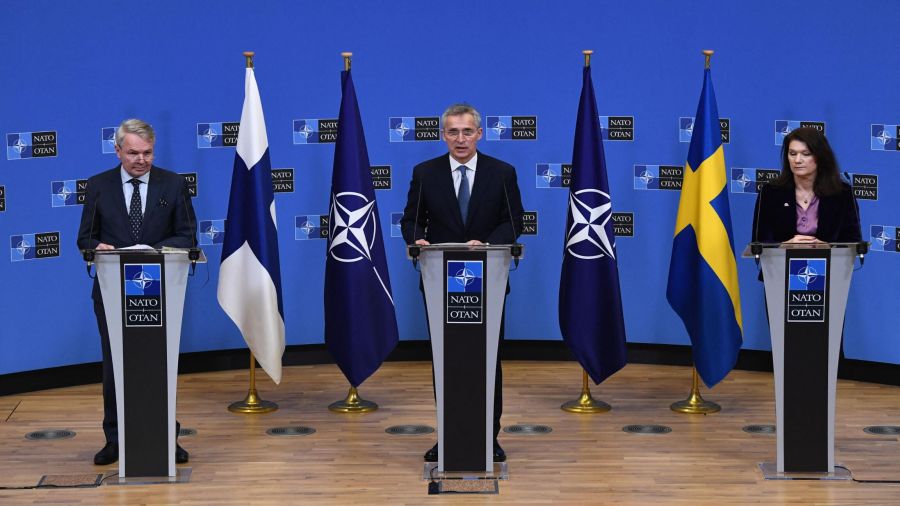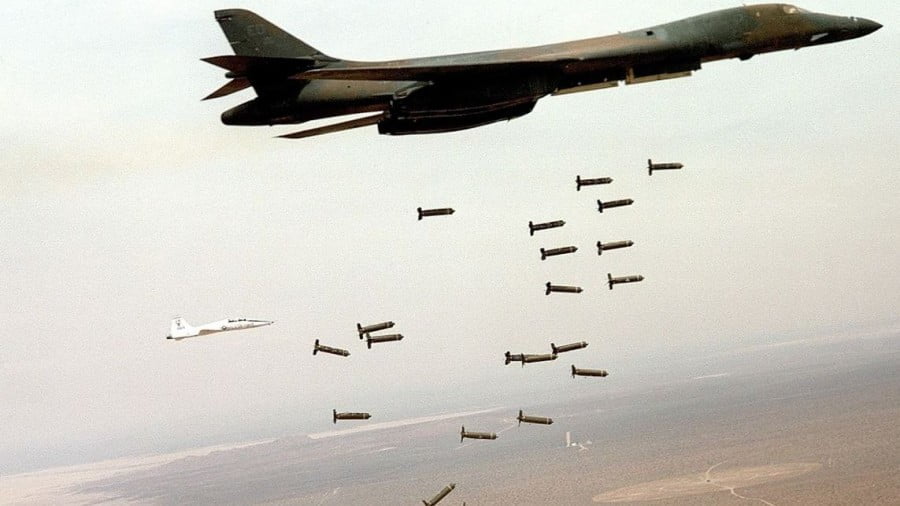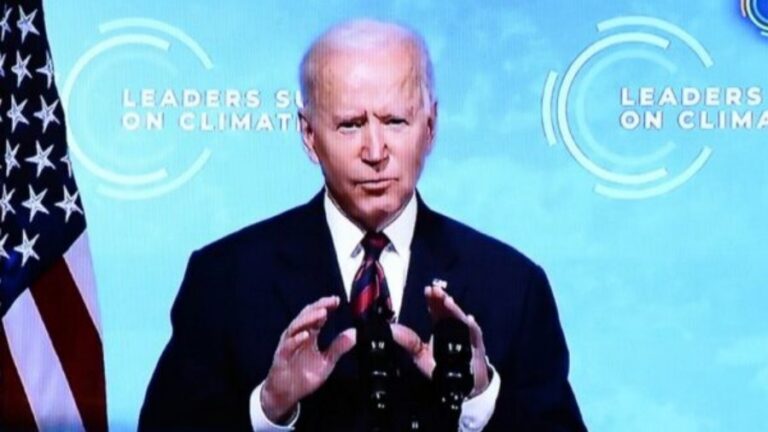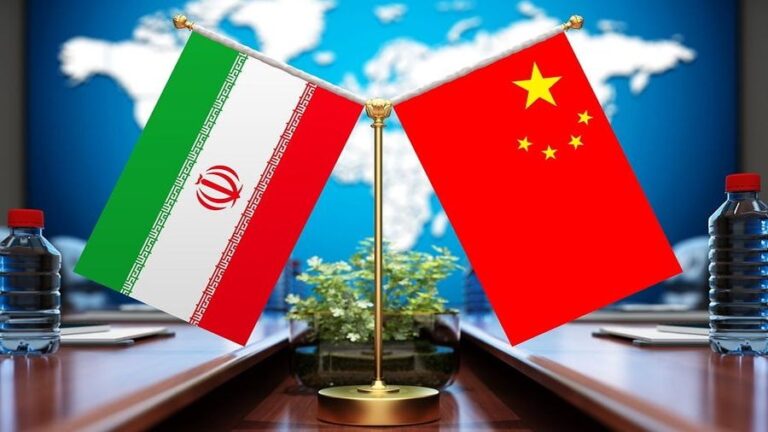“Chickens Are Counted in the Autumn”… Erdoğan and Menendez Take Time Out
At the NATO summit in Vilnius in July, it was as if a breakthrough had been made in hastening Sweden’s entrance to the North Atlantic Alliance. As previously disclosed, Turkish President Recep Tayyip Erdoğan stated on the eve and during the summit that Ankara would be willing to expedite the consideration of Sweden’s NATO membership and link its decision to a similar procedure for Turkey’s EU entrance.
In other words, whether satisfied with Stockholm’s approach to toughening anti-terrorist legislation and treatment of Kurdish separatists who have taken refuge in Sweden; whether having changed the subject of Kurds to Turkey’s membership in the EU; or having received assurances from Western allies led by the U.S., including Swedish Prime Minister Ulf Kristersson, that they will provide impressive financial and economic assistance to the Turkish economy; or hoping for a quick delivery of U.S. arms (the protracted issue of modernized F-16 fighter jets and spare parts for them); Erdoğan nevertheless agreed to lift his veto on Sweden’s admission to NATO.
Regarding the summer recess of the parliamentary corps, which will last until October this year, Turkey has not yet made a decision in favor of Sweden’s alliance participation. Simply expressed, the eternal principle of the upfront payment represents the reality of Turkey’s pragmatic approaches to this issue more than ever before. Erdoğan’s political adaptability and skill astound both his allies and his adversaries on the outside.
Nonetheless, Erdoğan’s propensity to engage in political bargaining is well known to the US, which serves as the primary arbitrator in the NATO alliance. Washington is unlikely to let Ankara abuse its tolerance, let alone cave in to its partner’s next conditions, which are increasingly akin to demands.
Before the NATO heads of state summit in Vilnius, the US made several attempts to persuade Turkey to make a favorable choice on the Sweden issue and, as they say, not to run against the wind, i.e., Washington’s final decision. U.S. Secretary of State Antony Blinken mentioned the prospect of the restoration of allied relations with Ankara and resuming supplies of the previously promised 40 F-16 Blok 70 fighters worth $20 billion as one of the authorized areas of support for Turkey. At the same time, considering the severity of the Turkish economy’s crisis, financial help from the United States was not ruled out. However, US President Joseph Biden’s administration linked the issue of military delivery to Turkey to the necessity for clearance from Bob Menendez, Chairman of the powerful Senate Foreign Relations Committee, who is in charge of coordinating US arms exports.
Although the members of the Grand National Assembly of Turkey are on vacation in August and September, and until August after July 12, i.e., the end of the NATO summit in Vilnius, there were still 19 days where the final decision was left to the deputies, the Turkish president promises to resume the discussion of Sweden’s membership in NATO after the parliamentary recess in October of this year. It turns out that Erdoğan is not merely implying what lawmakers would think; rather, he is trying to sound like the American president’s administration by mentioning the Senate and Congress’ requirement for consent before arming the Turks.
The Nationalist Movement Party (MHP) Chairman Devlet Bahçeli, who is Erdoğan’s political associate, took a very negative view of Ankara’s change in strategy toward Stockholm after the summit in Vilnius, claiming that it violates the security interests of the Turkish state because Kurdish separatists pose a threat to the Republic of Turkey’s territorial integrity.
In particular, Devlet Bahçeli stated in this regard: “Sweden stubbornly refuses to distance itself from terrorism, moreover, the Swedish government authorizes dishonorable vandalism of the Quran, and afterwards publishes scathing statements of supposed condemnation. The essence and purpose of NATO’s open door policy cannot be more important than our national security and sovereign rights. How do we close our eyes to this helplessness? How do we digest this? Just because the US wanted to, wagged its finger over the F-16 post avocations, are we going to let this humiliation pass? Sweden is the Kurdistan Workers’ Party’s (PKK) cave in Europe, and Stockholm is analogous to the Qandil Mountains (where PKK leaders in Iraq are sheltered).”
However, in the final part of his assessment of the “Swedish status”, Bahçeli emphasized that the final decision is up to the Turkish president. “In any case,” the Turkish politician said, “the decision rests with the president. The Swedish military is already effectively taking part in NATO operations.”
The important decisions in Turkey are now taken by President Erdoğan rather than the parliament, according to the leader of the parliamentary party that is a part of the ruling coalition. It turns out that the Turkish president is somewhat disingenuous when he asserts that the deputies have the ultimate say in matters such as Sweden and other crucial ones. For all the achievements of Turkish democracy, the head of the executive branch continues to carry more weight.
However, Ankara has once more observed that the West as a whole did not warmly welcome Erdoğan’s attempt to connect the Swedish issue in NATO to Turkey’s EU membership. Following the Vilnius summit, European politicians and officials declared unambiguously and repeatedly that Turkey’s accession to the EU was not in the near future and had nothing to do with Sweden’s membership in the military alliance. Brussels simultaneously advanced worn-out arguments about Turkey’s shortcomings in the areas of democracy, citizen rights and freedoms, legislative non-compliance with European standards, and economic non-compliance, and even reminded the Turks of the recognition of the Armenian genocide in the Ottoman Empire.
And what about the USA? “Will Senator Robert Menendez Decide the Fate of Sweden’s NATO Membership?” I asked in one of my recent columns. I questioned if the chairman of the United States Senate Foreign Relations Committee, who is responsible for the US arms exports control, is truly capable of going against President Biden’s opinion or if such “decisiveness” is the product of the White House administration’s own policies.
In other words, President Erdoğan took a timeout till October of this year while waiting for the promised (or desired) reforms in the West’s policy to Turkey. Meanwhile, in response to Brussels’ harsh reaction to Erdoğan’s EU membership ultimatum, Bob Menendez, Chairman of the Senate Foreign Relations Committee, declined to give the go-ahead for an arms deal to supply Turkey F-16 fighter jets.
In terms of the “Swedish case”, Bob Menendez stated: “I have always said that Sweden’s admission (to NATO), which should have happened as it is, is not a prerequisite for me to lift the ban on F-16.” The senator believes there are “more serious problems” for the supply of fighter jets to Turkey. Menendez told Reuters that the president’s administration “must find a way to guarantee an end to Turkey’s aggression against its neighbors.”
This means Turkish Air Force violations of Greek airspace, threats from Ankara towards Cyprus and Armenia, and Turkey’s employment of F-16 fighter jets against US-backed Kurdish formations in Syria. Furthermore, Senator Menendez of New Jersey cannot disregard the views of his constituents, many of whom are members of substantial ethnic populations of Armenians and Greeks. The US appears to be utilizing the Greek issue, as well as the Cyprus, Armenian, and Kurdish crises, to exert “soft pressure” on Turkey for the time being.
Autumn always pleases with harvest; however, the harvest is heavily influenced not only by external factors such as weather conditions, soil characteristics, water supplies, and so on, but also by the subjective component, i.e., the peasant himself—a harvester, a gardener, an agriculturist, and so on. Nevertheless, as they say, chickens are counted in the autumn. In our case, a lot of water will flow to the mills in NATO countries until October, and changes may also happen in the Ukrainian theater of the military-political crisis with the famous grain deal. Turkey and the U.S. are taking time out to synchronize watches and opportunities for the fall season. One thing is certain: NATO will not crumble in October, and Sweden is already working closely with the alliance.
Before the fall, Turkey will have to pass a difficult test in the NATO region in the Black Sea straits about a potential convoy of merchant ships from Ukrainian ports carrying the alliance’s warships and combat planes. While the United States and NATO hope that Turkey will be able to take the lead in the Black Sea Grain Initiative and persuade Russian President Vladimir Putin to return to the Istanbul project, Erdoğan doesn’t want any escalation with Russia over the grain trade and other concerns.
It cannot be ruled out that the issue of American military supplies and financial help to Turkey would be decided based on the effectiveness of Turkish diplomacy. Sweden, on the other hand, is not in a hurry; it is already safe, neutral or not.






